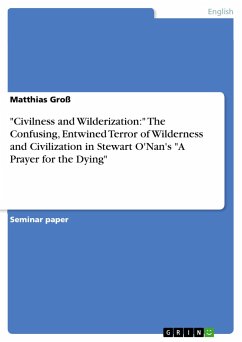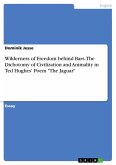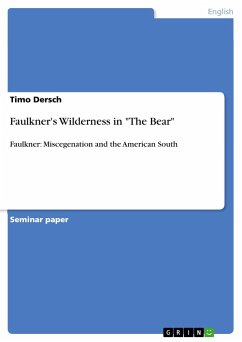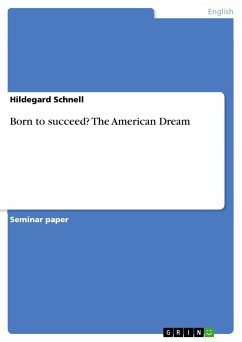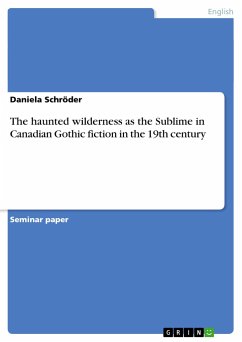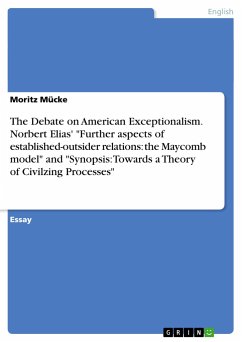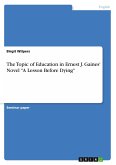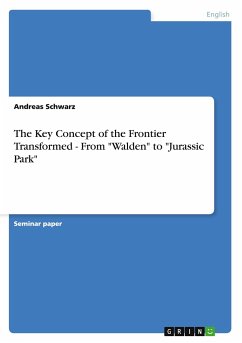Seminar paper from the year 2005 in the subject American Studies - Literature, grade: sehr gut (1,0), University of Leipzig (Institut für Amerikanistik), course: Wilderness and Civilization in American Fiction, language: English, abstract: The writing of this paper was initiated by a seminar on the concepts and implications of civilization and wilderness in American fiction. When Frederick Jackson Turner analyzed the significance of the Frontier in American history, he claimed that the true American character was not influenced by Europe, but built by the constant, strenuous interaction with and the heroically endured hardships of nature's wildness, which presented itself to the pioneers along the frontier line up until 1890, when the frontier was considered officially closed (Turner 1893). Accordingly, nature and wilderness play an important role in American history, character, and literature. Wilderness visualized as trees or the woods in general, symbolizes a lawless place and, thus, not only allowing for the idea of beasts but also of criminals living there. The uncanny in this picture is obvious and allows for mystifications quite a lot. Besides symbolizing a place of evil, wilderness has also been a space for the individual, most evident in the Puritan idea of expelling non-conformist people, sinners, from the community and sending them to exile into the woods. In this regard, Nathaniel Hawthorne's Scarlet Letter and its adulterous protagonist Hester Prynne serve as a perfect example from literature. In this instant it becomes clear, that wilderness and civilization serve as binary oppositions, that have been primarily favored as neatly separated categories in the Puritan thinking. Civilization has been praised as the ideal, refining, and humane state, which can only be realized in the community and its democratic institutions. The missionary thought of bringing civilization to the continent and, thus, taming the wilderness, evoked a new idea: that of Manifest Destiny. Pioneers turn into the chosen people, bringing light into the darkness of the wild continent. The author would like to note that the following pages were attempted to be structured according to those concepts. Trying to do so, however, the subject of the paper, Stewart O'Nan's novel A Prayer for the Dying, proved itself to be challenging for such a proceeding. The concepts of civilization and wilderness can be found throughout the novel and to a certain degree can be deconstructed nonetheless, but they present themselves not in an exclusive, absolute, and categorical but rather in a confused and intertwined manner.
Hinweis: Dieser Artikel kann nur an eine deutsche Lieferadresse ausgeliefert werden.
Hinweis: Dieser Artikel kann nur an eine deutsche Lieferadresse ausgeliefert werden.

